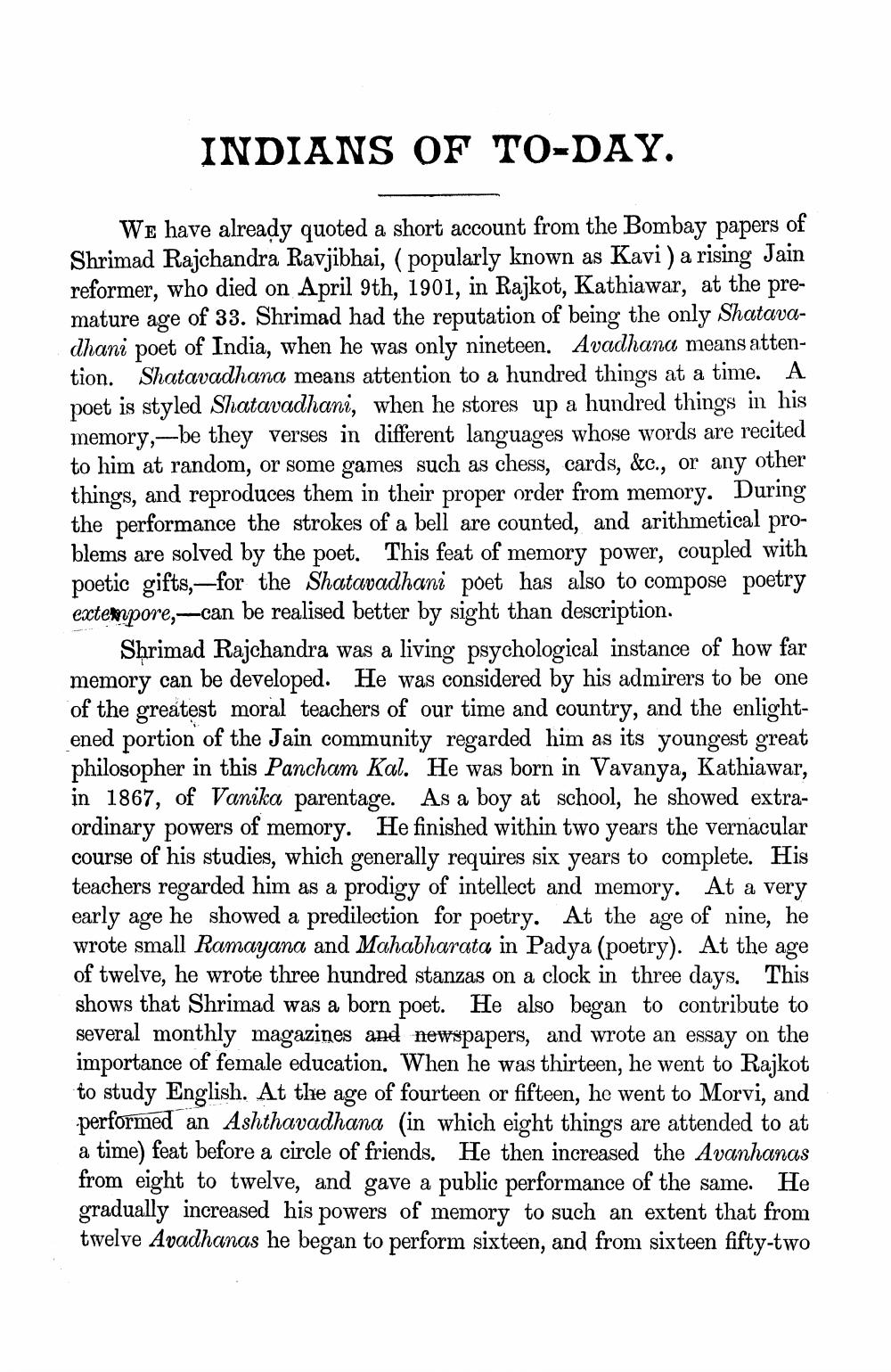________________
INDIANS OF TO-DAY.
We have already quoted a short account from the Bombay papers of Shrimad Rajchandra Ravjibhai, ( popularly known as Kavi) a rising Jain reformer, who died on April 9th, 1901, in Rajkot, Kathiawar, at the premature age of 33. Shrimad had the reputation of being the only Shatavadhani poet of India, when he was only nineteen. Avadhana means attention. Shatavadhana means attention to a hundred things at a time. A poet is styled Shatavadhani, when he stores up a hundred things in his memory,-be they verses in different languages whose words are recited to him at random, or some games such as chess, cards, &c., or any other things, and reproduces them in their proper order from memory. During the performance the strokes of a bell are counted, and arithmetical problems are solved by the poet. This feat of memory power, coupled with poetic gifts,- for the Shatavadhani poet has also to compose poetry extempore, --can be realised better by sight than description.
Shrimad Rajchandra was a living psychological instance of how far memory can be developed. He was considered by his admirers to be one of the greatest moral teachers of our time and country, and the enlightened portion of the Jain community regarded him as its youngest great philosopher in this Pancham Kal. He was born in Vavanya, Kathiawar, in 1867, of Vanika parentage. As a boy at school, he showed extraordinary powers of memory. He finished within two years the vernacular course of his studies, which generally requires six years to complete. His teachers regarded him as a prodigy of intellect and memory. At a very early age he showed a predilection for poetry. At the age of nine, he wrote small Ramayana and Mahabharata in Padya (poetry). At the age of twelve, he wrote three hundred stanzas on a clock in three days. This shows that Shrimad was a born poet. He also began to contribute to several monthly magazines and newspapers, and wrote an essay on the importance of female education. When he was thirteen, he went to Rajkot to study English. At the age of fourteen or fifteen, he went to Morvi, and performed an Ashthavadhana (in which eight things are attended to at a time) feat before a circle of friends. He then increased the Avanhanas from eight to twelve, and gave a public performance of the same. He gradually increased his powers of memory to such an extent that from twelve Avadhanas he began to perform sixteen, and from sixteen fifty-two




